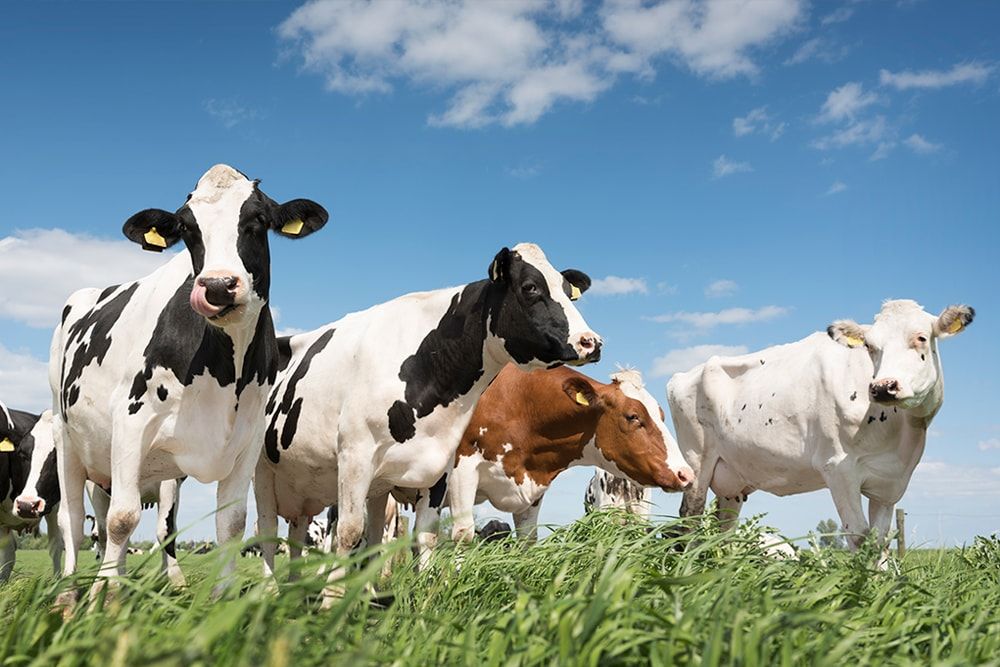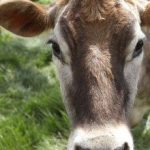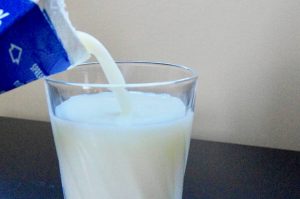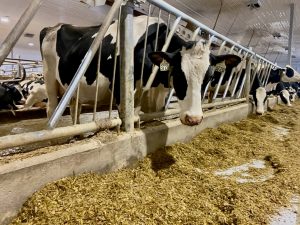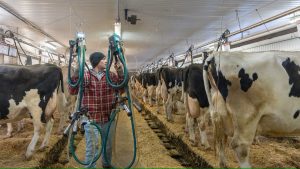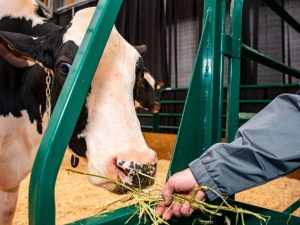
Published in the September 2021 issue of Journal of Dairy Science, “Diet supplementation with canola meal improves milk production, reduces enteric methane emissions, and shifts nitrogen excretion from urine to feces in dairy cows” details research led by Chaouki Benchaar, research scientist with Agriculture and Agri-Food Canada in Sherbrooke, Quebec.
The researchers found that methane, expressed on dry matter intake basis, as a percentage of gross energy intake, or grams per pound of energy corrected milk declined as the amount of canola meal in the diet increased. This energy was captured in greater milk production, rather than lost to the atmosphere.
The researchers also found that more of the dietary nitrogen from canola meal was converted to milk protein, and less was lost in the urine with each incremental increase in dietary canola meal (Table 2). Urine nitrogen contributes to atmospheric ammonia and nitrous oxide.
“It is really interesting that canola meal reduces methane emissions, shifts nitrogen excretion from urine to feces (i.e. less potential N emissions) and improves performance at the same time,” said Benchaar. “Thus, canola meal improves the environmental footprint of milk production.”
The diets contained 52% forage and 48% concentrate (on dry matter basis). The diets were balanced to provide 16% crude protein, with all the supplemental protein in the control diet provided by soybean meal. The test diets contained (on dry matter basis), 8, 16 or 24% canola meal. Dry matter intake and energy corrected milk increased as canola meal in the diet increased, with no effect on feed efficiency (energy corrected milk/dry matter intake).
“To the best of my knowledge, the 24% inclusion of canola meal is the highest ever tested in a controlled study,” Benchaar said. “The all-canola meal diet resulted in 5 pounds more energy corrected milk than the all-soybean meal diet.”
This research provided support for the Life Cycle Analysis (LCA) model previously published in the Journal “Animals” (Volume 11, paper 1636, 2021) entitled “Canola Meal versus Soybean Meal as Protein Supplements in the Diets of Lactating Dairy Cows Affects the Greenhouse Gas Intensity of Milk.” A complete “Cradle to Gate” assessment was conducted simulating farms that typify conditions in Quebec and Alberta, Canada. The LCA models revealed that, relative to diets where soybean meal was used as the primary supplemental protein source, greenhouse gas/unit of fat and protein corrected milk was reduced by 6.6% for the Quebec and 3.0% for the Alberta LCA. The researchers noted that, while this study focused on milk production in Canada, the concepts and methodology used are transferrable and can be used elsewhere to evaluate greenhouse gas mitigating strategies.
This research is part of the Canola AgriScience Cluster, with funding provided through Agriculture and Agri-Food Canada’s Canadian Agricultural Partnership, the Canola Council of Canada, Alberta Canola, SaskCanola and the Manitoba Canola Growers. For more information, please visit Canolamazing.com.
